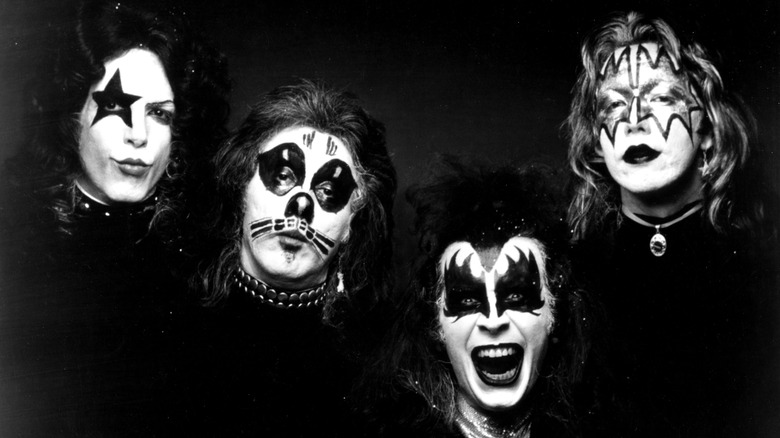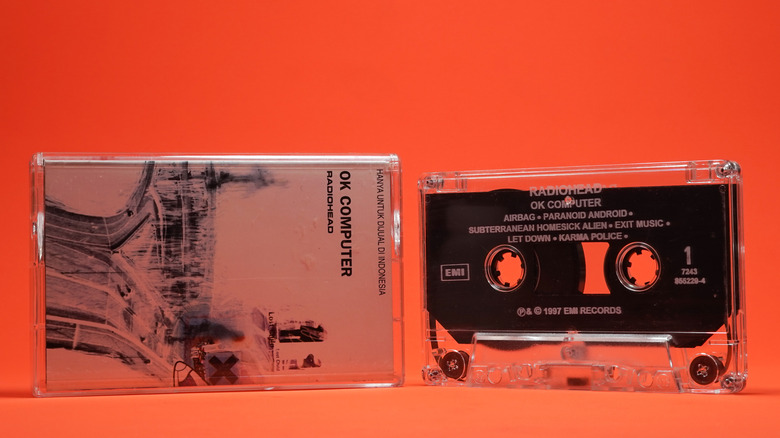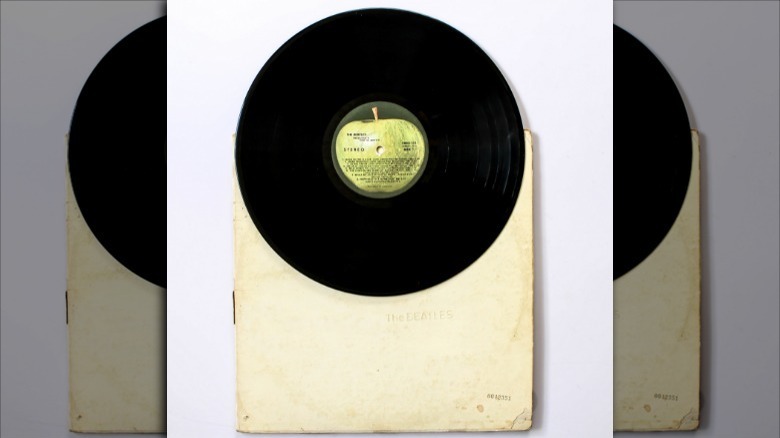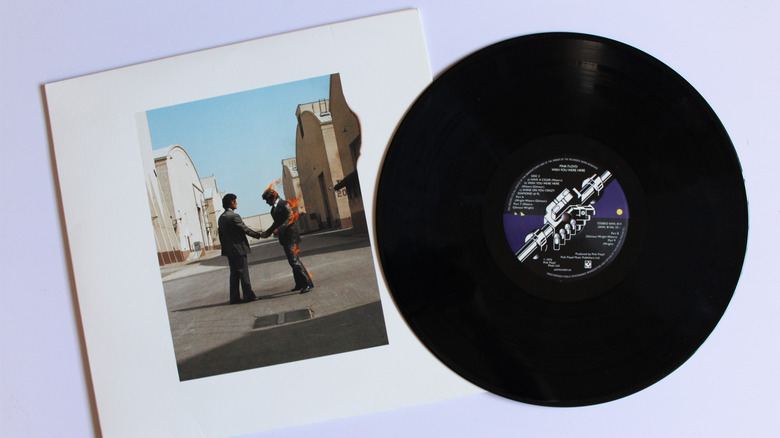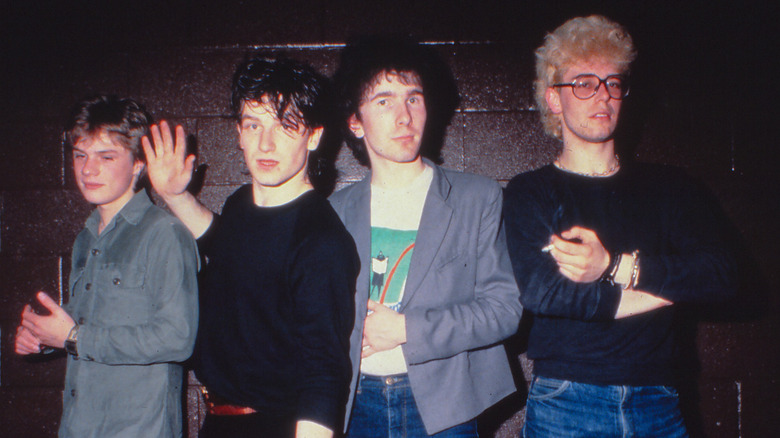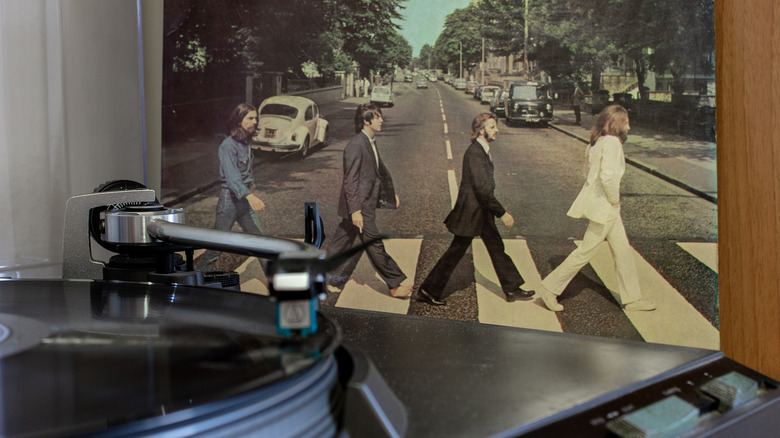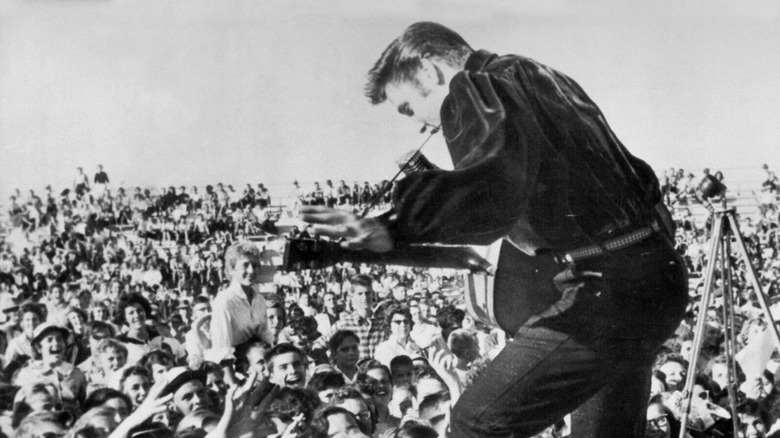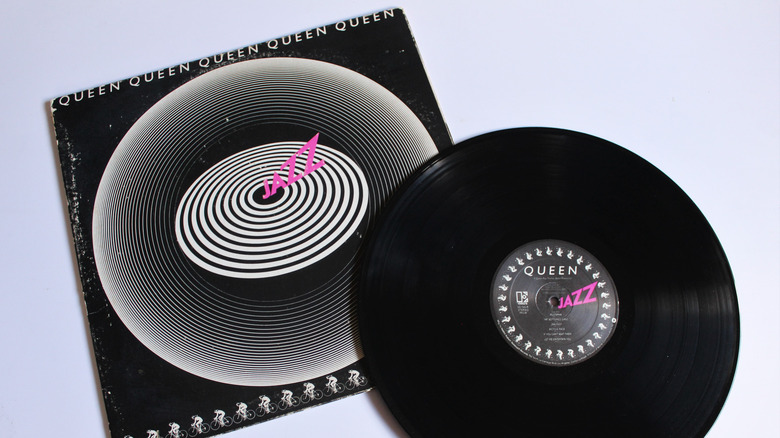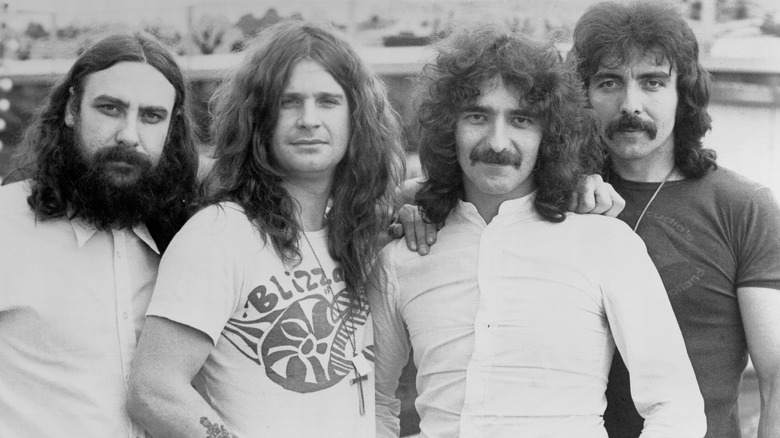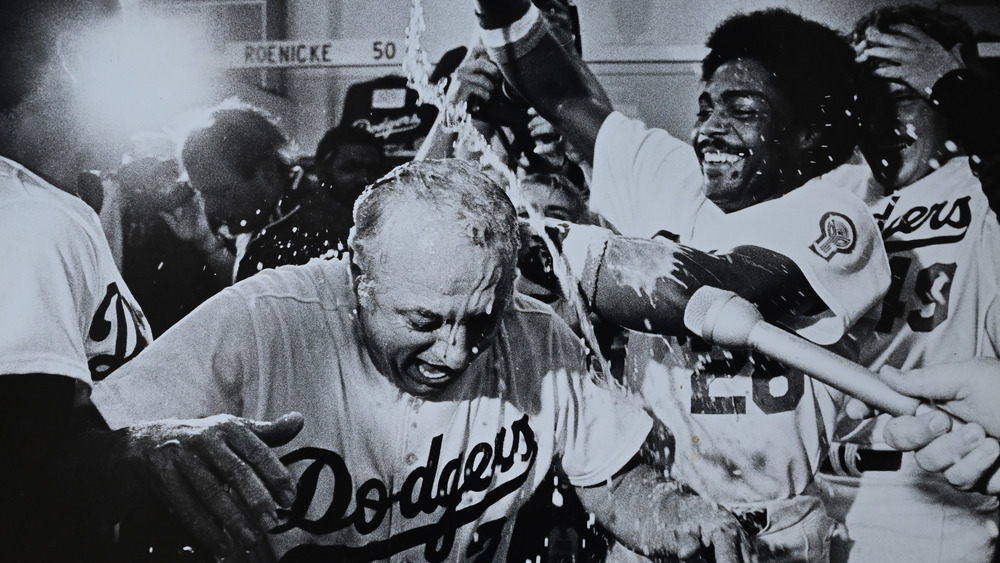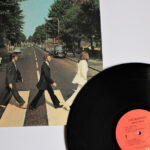
Music Critic Reviews That Aged Poorly
All art is subjective. That makes the job of a music critic both impossible and absolutely necessary. Impossible because there will always be those who vehemently disagree with your assessment of a piece of music, and necessary because there’s so much music out there that we all need a guide.
Most music criticism is ephemeral — it’s written, discussed, and then fades into the past, it’s job done. Sometimes, though, a piece of criticism is so off the mark that time renders it almost absurd. It’s often difficult to recognize music that is revolutionary and culturally transformative — just ask Dick Rowe, the guy who turned down the Beatles in 1962, proclaiming “guitar groups are on their way out” (Rowe corrected his mistake a few years later by signing the Rolling Stones).
That means that every now and then a music critic writes a review they most certainly come to regret — even critics who are otherwise regarded as tastemakers and reliable sources of musical wisdom. This usually involves declaring that a band or artist will never succeed, or giving a negative review to an album that goes on to be regarded as a classic by just about everyone. Here are a few music critic reviews that aged poorly.
Patrick MacDonald's review of KISS in concert, 1974
No one’s ever going to accuse the band that wrote “Love Gun” of subtlety or complexity. KISS aren’t known for their sophisticated lyrics or scientific approach to music theory — but they are a band with real staying power. KISS formed in 1973 and continue to perform today, meaning they’ve been one of the biggest music acts in the world for nearly half a century.
Back in 1974, however, none of that seemed likely. The band’s first album, “KISS,” was released in February of that year, and the band toured relentlessly to promote it. But, as noted in “KISS: Behind the Mask,” the album only sold 75,000 copies. That wasn’t bad for their small record label, but didn’t exactly mark them as future superstars.
This context might explain Patrick MacDonald’s infamous review of the band’s concert at the Paramount Northwest in Seattle on Mary 25, 1974. Ultimate Classic Rock decribes the review as “withering,” and it’s easy to see why. MacDonald called them “a very flashy glitter band that tries to make up in theatrics what it lacks musically” and added “I hope the four guys who make up the group, whose names don’t matter, are putting money away for the future, the near future. Because Kiss won’t be around long.”
Nearly 50 years later, the band appears to be having the last laugh. They even used quotes from MacDonald’s review on T-shirts made for their 2000 tour.
Jon Landau's review of Are You Experienced, 1967
Rolling Stone is a legendary music magazine today, but in 1967 it was just launching. And it managed to include an album review in its very first issue that has likely haunted publisher Jann Wenner ever since.
Today Jimi Hendrix is regarded as one of the greatest guitarists of all time. He elevated the instrument and transformed its sound in ways that are still being imitated today. The debut album he released with his band, the Jimi Hendrix Experience, “Are You Experienced,” was an instant hit in 1967 and is today regarded as one of the most influential and important pieces of rock music ever. Aside from the iconic titular song with its backwards riffs and complex arrangement, the album contains some of Hendrix’s most famous songs, including “Foxy Lady,” “Manic Depression,” and “Fire.”
But Rolling Stone critic Jon Landau wasn’t having any of it. In a review the magazine is likely mortified about today, he cited “the poor quality of the songs and the inanity of the lyrics” as reasons why he didn’t dig the album. He also complained that “what Jimi is trying to get across is such a drag.” In the pantheon of reviews that have aged badly, Landau’s inability to get what Hendrix was doing with his guitar will always be one of the most absurd examples.
Robert Christgau's 1997 review of Radiohead's OK Computer
Robert Christgau describes himself as the “dean of American rock critics,” and he’s not entirely wrong. As the senior music editor for The Village Voice for nearly 40 years, he established a reputation for smart, pithy music reviews in a “capsule” format accompanied by a letter grade.
But even the dean of American rock critics can be woefully wrong sometimes, and Christgau’s 1997 review of Radiohead’s “OK Computer” is evidence of this. As noted by Flavorwire, he awarded the album his “Dud of the Month” honor, reserved for the album that he deemed least worthy of your attention. He said of the record, “their idea of soul is Bono, who they imitate further at the risk of looking even more ridiculous than they already do” and added “I guarantee that it will not occupy the charts for 10 years.”
More then 20 years later, “OK Computer” is now regarded as one of the most important records of the 1990s — a prescient semi-concept album that almost predicted our current world of drones, lonely social media, and intrusive corporate oversight. In 2017, the New York Times connected the album to the Beatles’ “Sgt. Pepper’s Lonely Hearts Club Band.” You know that Robert Christgau may never live down that scathing review.
NME's review of Pearl Jam's Ten in 1991
Every time a new subculture or musical genre erupts into being, there’s a period of in-fighting and argument about authenticity. People love to ride a bandwagon, and trend-followers will flock to what was until recently a small and fiercely devoted musical world, upsetting the original devotees. Every newcomer is accused of being a poser, and the rules of what defines your subculture gets litigated and re-litigated endlessly.
It’s hard to imagine today, but Pearl Jam once fell victim to this dynamic. As reported by the AV Club, even lead singer Eddie Vedder expressed feelings of guilt that his band enjoyed explosive success seemingly at the expense of bands that had been part of Seattle’s grunge scene for far longer. Yardbarker notes that a lot of music reviewers weren’t terribly impressed by Pearl Jam’s debut, “Ten.” Many regarded the band as pale imitations of other grunge bands.
As explained in “Not for You: Pearl Jam and the Present Tense,” the most scathing review came from NME, which accused the band of being cynical hucksters riding a trend and “trying to steal money from young alternative kids’ pockets.”
“Ten” went on to a slow-burn mega-success enjoyed by few albums, and is regarded as one of the foundational records of the grunge era. In other words, if the band was trying to steal money from kids, it was spectacularly successful at it.
John Mendelsohn's review of Led Zeppelin in 1969
Today, Led Zeppelin are one of those untouchable bands. You might not love their style of music, but just about everyone agrees they were one of the best bands to ever play it, if not the best.
Back in 1969 when the band released its debut album, “Led Zeppelin,” that wasn’t so obvious. In fact, as Cosmic Magazine reports, most critics yawned at it, regarding the band as unremarkable Cream impostors. But one review stands out as particularly awkward more than five decades later: John Mendelsohn’s take on the album that appeared in Rolling Stone. In it, he complains that Jimmy Page is a “limited producer” and a writer of “weak, unimaginative songs.” As a reminder, this is the album that introduced the world to “Communication Breakdown,” “Dazed and Confused,” and “Good Times, Bad Times.”
In 2014, Time described the album as “transcendent,” and it would still sound progressive and exciting if released today. It’s also one of the most influential albums in rock music, with modern-day musicians still taking reference from it. Much of its power stems from Page’s arrangements and production, which are today recognized as precise and often experimental.
Mike Jahn's Review of The White Album in 1968
The Beatles have attained the rarefied air of true legend — even if you’re not a huge fan, you know the band and you know at least a handful of their songs. And a few of their albums have become fixtures on any list of greatest records — “Sgt. Pepper’s Lonely Heart’s Club Band,” and “Abbey Road,” for example, as well as the messy, ambitious “The Beatles,” aka “The White Album.”
As noted by BBC Culture, this 1968 double album still inspires debates even among hardcore Beatles fans, but there’s a real argument that it’s their best. Contemporary reviews were largely positive — often strikingly so. Jann Wenner wrote in Rolling Stone that the album represented “the history and synthesis of Western music,” and considered it the band’s greatest album.
And then there’s Mike Jahn. Writing for the New York Times, Jahn… didn’t get it. He called the album “hip Muzak, a soundtrack for head shops, parties and discotheques,” adding “the album has nothing new and very little that is even recent.” He concluded his review by flatly stating that Blood, Sweat, and Tears was a better band than the Beatles. That may be the one line from a music critic’s review that has aged the most poorly of all time.
Melody Maker's 1975 review of Pink Floyd's Wish You Were Here
“Wish You Were Here” is a sometimes overlooked album in Pink Floyd‘s catalog. It’s overshadowed by the earlier “Dark of the Moon” and the smash hit “The Wall.” But that doesn’t mean the record was not an incredible success. As reported by Rolling Stone, the album has sold six million copies worldwide and three million in the U.S. alone.
Which makes Melody Maker’s September, 1975 review of the album confounding. Yardbarker reports that the scathing assessment noted “a critical lack of imagination in all departments.” Worse, the review went on to complain that the band “amble somnambulantly … arm in arm with some pallid ghost of creativity.” (via “Echoes: The Complete History of Pink Floyd“). And if those words seem a bit flowery, the review concludes very simply: “‘Wish You Were Here’ sucks. It’s as simple as that.”
Pink Floyd isn’t for everyone, of course, but it’s a music critic’s job to offer incisive commentary, and Melody Maker’s review hasn’t aged well at all in those terms. Meanwhile, the album itself has aged very well. In 2020, Rolling Stone ranked it as number 264 on its list of the 500 greatest albums of all time.
Robert Christgau's 1981 review of Boy by U2
Getting things terribly wrong is a persistent danger for any critic — there are plenty of examples of music critics who simply didn’t get a record that turned out to be incredibly important (or simply great). Robert Christgau is no exception. In 1990, the Los Angeles Times argued that Christgau was an important critic because he “writes with the same reckless independence and ferocious eccentricity that fuels our most valuable pop artists,” but also noted his flaws: reviews that could be hard to follow and the injection of his personal taste into too many reviews.
One of the worst examples of Christgau getting things wrong is his 1981 review of U2‘s debut album, “Boy.” Christgau gave it a C+ (which is extremely bad in Christgau terms) and wrote that the album was “as bubble-headed as the teen-telos lyrics at best, as dumb as Uriah Heep at worst.” The Los Angeles Times describes his review as a “grouchy dismissal,” and notes he added “Their youth, their serious air, and their guitar sound are setting a small world on fire, and I fear the worst.”
Even Christgau’s peers knew he was way off base on this one, as the album was voted number 18 on The Village Voice’s Pazz and Jop Critics Poll that year. Today it’s regarded as one of the strongest debut albums of all time (via Rolling Stone). Christgau just didn’t get it.
Ed Ward's 1969 review of Abbey Road
You might think that by 1969 the Beatles were beyond the reach of mortal music critics, but Rolling Stone’s Ed Ward wasn’t intimidated by the band that gave us “Sgt. Pepper’s Lonely Heart’s Club Band” and “The White Album.” Reel Harmonies notes that Ward’s 1969 review wasn’t shy, starting off with “What’s it like? Well, I don’t much like it” and ending with “Surely they have enough talent and intelligence to do better than this.” In-between, he describes the famous side-two medley as “a disaster.”
Vulture reports that Rolling Stone was nonplussed enough by this review to hire John Mendelsohn to write a second one, which turned out much more positive. To the magazine’s credit, they ran both reviews.
Over 50 years later, “Abbey Road” is regarded as a classic of polished studio wizardry and an incredible comeback for a band that had been falling apart for years. AllMusic describes it as “a remarkable goodbye record,” adding “what makes Abbey Road transcendent is how the album is so much greater than the sum of its parts.” Ward eventually admitted he was wrong, telling Vulture in 2009 that he “was just a 20-year-old kid who was very full of himself.”
Jack Gould's review of Elvis Presley in 1956
The New York Times isn’t always known for being on the cutting edge of pop culture — you don’t earn the nickname the Gray Lady for being hip. But Jack Gould’s 1956 assessment of the King of Rock and Roll stands out as a particularly clueless piece of music criticism, and one that hasn’t aged well at all.
As noted by the Elvis History Blog, Presley was seen as a real threat to the status quo and to the innocent youth of America, and his appearances on television in 1956 sparked a backlash. History explains that Presley’s appearance on “The Milton Berle Show” on June 5, 1956 caused a scandal because his whole body was shown, without a guitar to obscure the, er, energetic motion of his hips. In the age of twerking this might not seem like much, but in 1956 it caused an uproar.
Gould got to work, writing “Mr. Presley has no discernible singing ability… for the ear he is an unutterable bore.” Gould went on to add that “his one specialty is an accented movement of the body” — that is, the iconic Presley hip-thrust. In 1956 you might have been forgiven for not realizing how thoroughly Presley would change pop music, or that he would go on to be one of the most important pop singers of the 20th century, but this review is one of the most clueless ever written.
Dave Marsh's review of Jazz by Queen in 1979
Queen are one of the most successful rock bands in history. While it’s true that not all Queen albums are equal, and their popularity has gone up and down over the years, in general everyone loves them some Queen.
Except music critic Dave Marsh. In fact, Dave Marsh disliked Queen’s 1978 album “Jazz” so much he came up with an all-time negative pull quote in his review in Rolling Stone: “Indeed, Queen may be the first truly fascist rock band.” He adds that the band “hasn’t the imagination to play jazz [or] the imagination, for that matter, to play rock & roll.” Ouch.
But if “Jazz” isn’t Queen’s greatest record, it’s still the album that contains the all-time classic songs “Fat Bottomed Girls,” “Bicycle Race,” and “Don’t Stop Me Now.” As noted by authors Matt Richards and Mark Langthorne, the album reached No. 6 in the U.S. and was eventually certified platinum. And the album’s legacy has definitely aged better than Marsh’s review — Ultimate Classic Rock ranks it as Queen’s third-best album, saying that “tucked away behind its unusually nondescript cover art lies one of the band’s finest albums.”
Lester Bangs's review of Black Sabbath's debut in 1970
Lester Bangs is one of the most famous music critics of all time. There’s a reason he was memorably immortalized by Philip Seymour Hoffman in the film “Almost Famous,” after all. The New Yorker says that Bangs “had the most advanced and exquisite taste of any American writer of his generation, uneven and erratic as it was.” And Bangs was known for his hilarious harsh takedowns in bad reviews — he was a man who loved rock music so much he got angry when it failed him.
But even Bangs got it wrong sometimes. Take, for example, his scathing Rolling Stone review of Black Sabbath’s debut album in 1970. It starts off with Bangs saying “Well, they’re not that bad, but that’s about all the credit you can give them.” Then he begins to dig in with classic Bangsian fury. “Vocals are sparse,” he writes, “most of the album being filled with plodding bass lines over which the lead guitar dribbles wooden Claptonisms from the master’s tiredest Cream days.” He concludes his acidic review with the cheerful line “just like Cream! But worse.”
Today the album is regarded as innovative and as one of the best debuts of all time. In fact, Rolling Stone revisited the album 34 years later, giving it five stars and concluding it would “would influence almost all the future bards of the metallic arts.”

The Untold Truth Of Isaac From The Bible

The Sad Story Of The Man Struck By Lightning 7 Times

Inside The North Korean Prison Case Of Otto Warmbier

The Truth About The SpyEye Heist

How Winning Baseball Games Temporarily Saved These Death Row Inmates
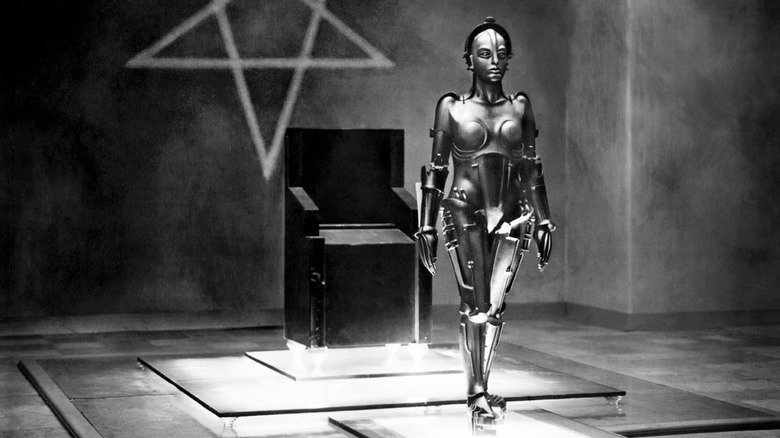
The Evolution Of AI In Movies Explained

The Untold Truth Of Anna Delvey
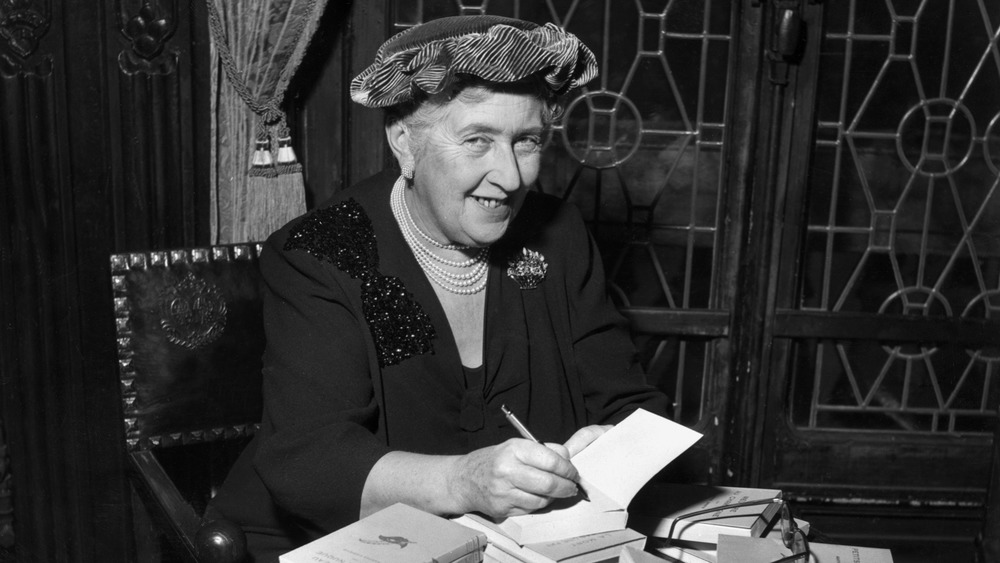
The Untold Truth Of Agatha Christie

The Tragic Death Of Jimi Hendrix

What Has Barry Gibb Been Doing Since Bee Gees?
